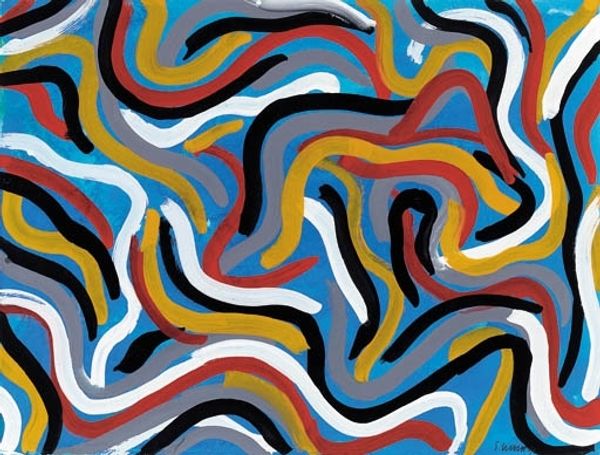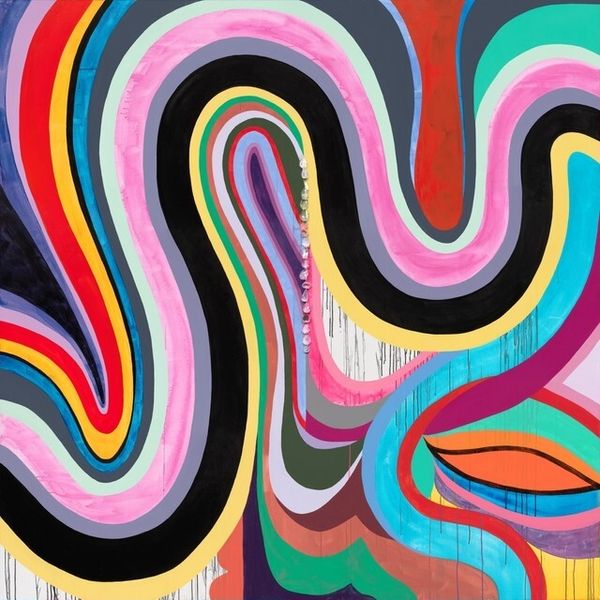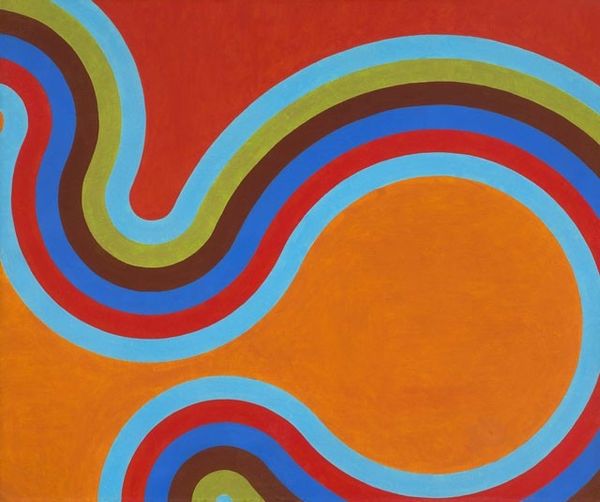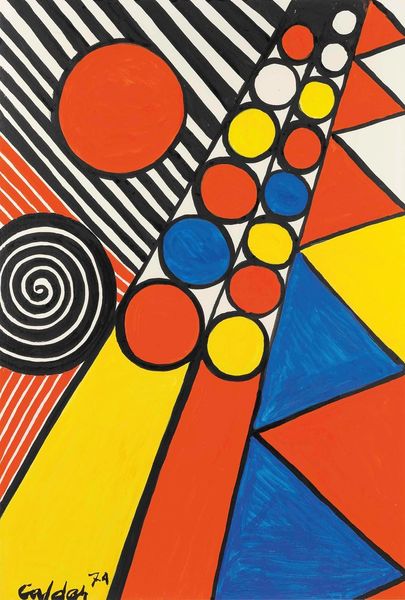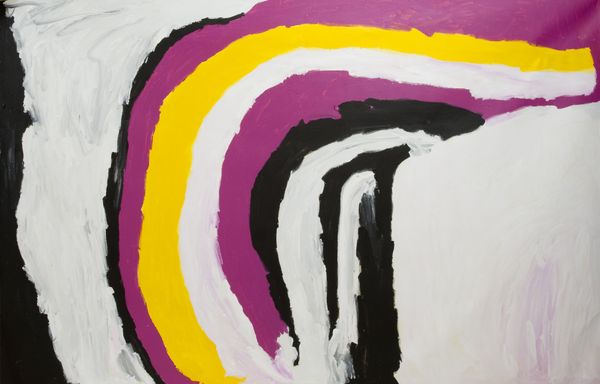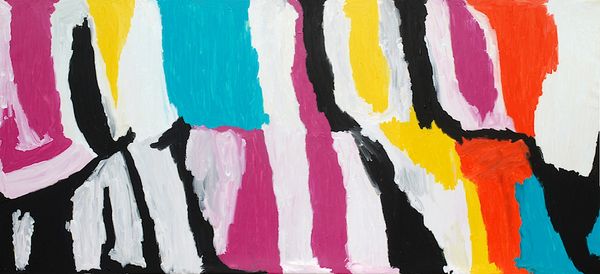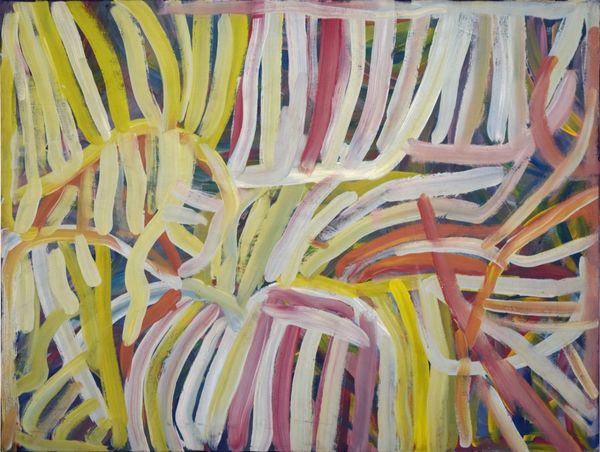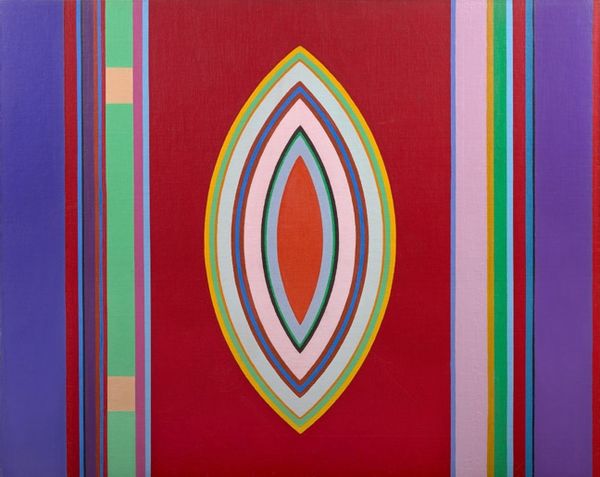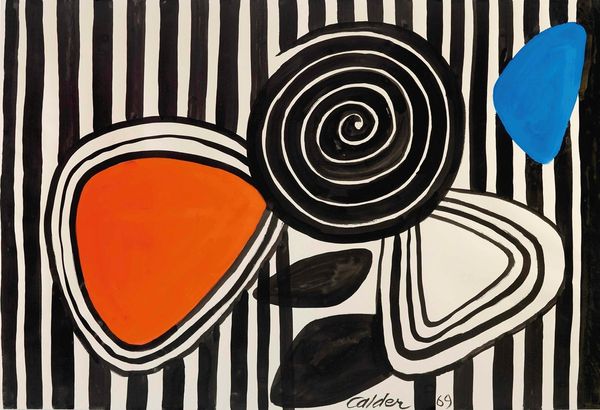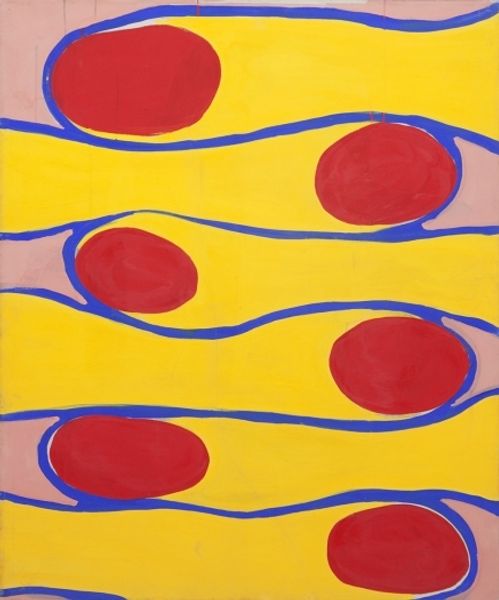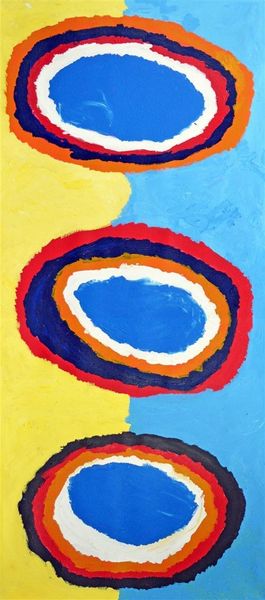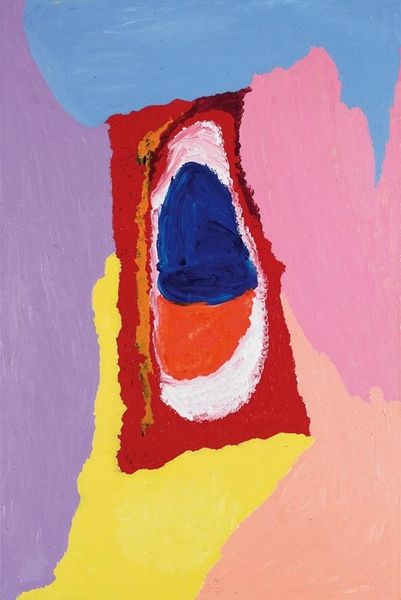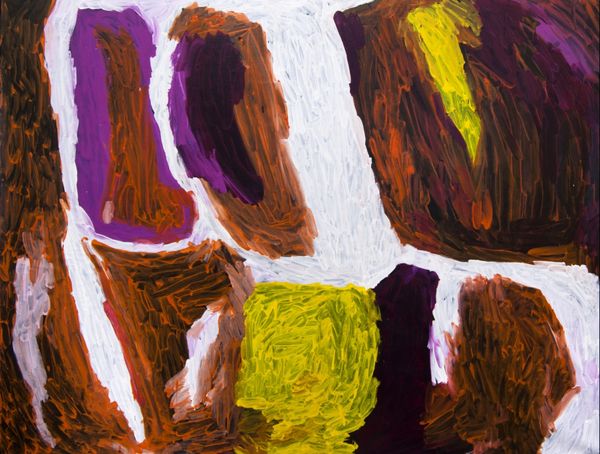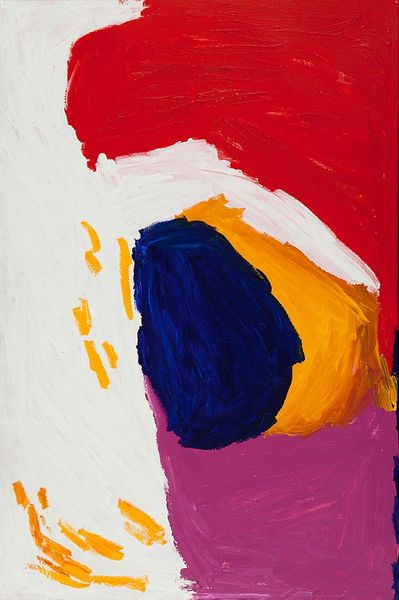
painting
#
natural stone pattern
#
naturalistic pattern
#
contemporary
#
painting
#
geometric pattern
#
abstract pattern
#
minimal pattern
#
organic pattern
#
repetition of pattern
#
vertical pattern
#
abstraction
#
pattern repetition
#
layered pattern
Copyright: Sally Gabori,Fair Use
Curator: Oh, my goodness. That just zaps you with joyful energy, doesn't it? So vibrant! Editor: Absolutely. I find it incredibly dynamic. Shall we delve a bit deeper? What are we actually looking at here? Curator: We're viewing "Sandbank", painted in 2005 by the celebrated Australian Aboriginal artist Sally Gabori. It's an acrylic on canvas, pulsating with organic forms. Editor: Sandbank… That makes sense. You can definitely sense the land and the sea, even with the abstraction. It almost has a topographical map quality, transformed by a joyous, playful sensibility. It definitely evokes feelings of Country. What do the colours mean here? Curator: Well, colours in Gabori’s work weren't necessarily literal representations, but carriers of memory and place. The contrasting bands might signify shifting sands, tidal movements, the way light reflects on the water, but through the filter of Gabori's own rich ancestral memory. It speaks of Kaiadilt land, memory, and continuity. Look at the repeating colours and vertical lines… Editor: True. It almost becomes a landscape seen through the lens of pure feeling, as though memory itself is given physical form. It also has that amazing ability to reflect place, while seeming wholly contemporary, perhaps owing something to Abstract Expressionism in terms of free expression. I keep seeing symmetry and repetition too... Curator: And indeed! In terms of symbolic symmetry and repetitions, patterns within a culture offer structures for understanding reality, they order perception... I can see repetition in other First Nations cultures. What the pattern repeats will signify cultural knowledge and wisdom. Editor: Thinking about how Indigenous art practice preserved memory… It reminds me of how songs preserve history, place and meaning across generations through oral tradition. So, colours, patterns – they aren't just aesthetic choices but mnemonic devices. Curator: Precisely! They are layered with cultural significance. Looking at this, I see an affirmation of life, even in the face of dispossession and displacement. Editor: It’s fascinating how Gabori, late in life, unlocked this incredible visual vocabulary. There's an immediacy and raw power to her vision that truly touches something primal in us. Curator: It invites us to reconsider how we relate to landscape and history, and to appreciate the depth and complexity embedded within seemingly simple forms.
Comments
No comments
Be the first to comment and join the conversation on the ultimate creative platform.
